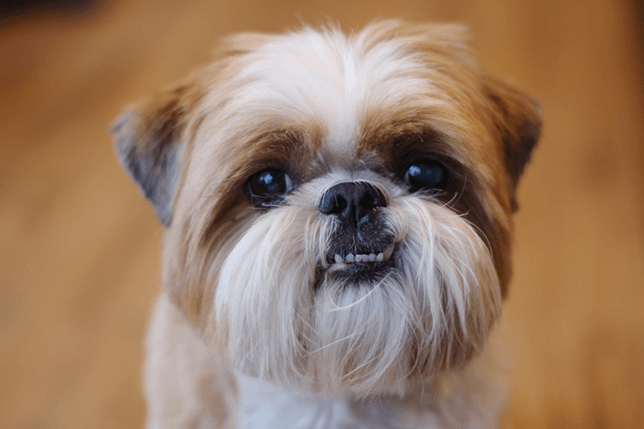10th March 2022
Brachycephalic dogs and the health risks

Not a lot of people would know what a brachycephalic dog is, and so would not recognise the potential health problems that come with the breeds. 3 brachycephalic dog breeds appeared on the Top 10 Breeds of 2019 list, meaning they are popular dogs but it’s important that potential owners, existing pet parents and breeders understand the complications that might come with a brachy dog.
What is a brachycephalic dog?
Brachycephalia refers to a flat and wide skull shape and means ‘short-headed’. It can give the appearance of a flattened face characteristic of certain breeds, but this bone structure can result in higher risk of certain health conditions.
What dog breeds are brachycephalic?
Some of the nation’s most popular dogs are brachycephalic. These include:
- Pug
- French Bulldog
- Bulldog
- Shih Tzu
- Boxer
- Boston Terrier
- Pekingese
Owners of brachycephalic dogs might not be able to recognise their pet’s breed-related health issues which can sometimes limit their quality of life.

What are the health risks for flat-faced dogs?
Not all brachycephalic dogs will suffer from health problems, but selective breeding and prioritising appearance over health can result in these breeds being prone to a lot of conditions.
Here are some of the health problems seen in some brachycephalic dogs.
Breathing problems
Brachycephaly interferes with a dog’s ability to breathe because the size of a dog’ nostrils and windpipe are reduced, and the soft palate could be blocking, or partially obstruct, their airway. This increases the amount of noise they make when they breathe, snore, wheeze, overheating, sleep apnoea and regurgitation.
Eye problems
Because of the way their eyes are positioned, many of these dogs have very prominent eyes. This can lead to a variety of health issues including, ulcers, infections, dry eye, and can even result in the removal of the affected eye.
Dental problems
Brachycephalic dogs can have shortened jaws and smaller mouths, but they have the same number of teeth as dogs with longer snouts.
All those teeth still have to fit in a smaller area, which can result in inevitable problems of overcrowding, teeth decay and gum disease.
Skin problems
These dogs can have deep skin folds around their eyes, mouth and ears. These folds and wrinkles trap dirt and bacteria and become infected. You might not be able to spot sores or signs of infection straight away, so it can be quite uncomfortable for brachycephalic dogs.
If you’re thinking of adopting or buying a short-nosed dog, it’s important to learn about the breed and any issues specific they face, and to make sure you’re able to provide them with the care they need.
Looking for more dog advice?
Find the information you need as we support you through every step of your journey with your canine companion.
Need dog insurance?
Dog insurance can help cover the cost of veterinary treatment if your dog gets injured or falls ill.
We know pets
Our pets are part of the family. To achieve our vision of a better future for pets everywhere, we work with our partners, vets, and other veterinary professionals who are pioneering the latest advancements in animal care. Our campaigns, articles, and events are crafted to support, educate, and celebrate pet owners, while our policies are designed to provide peace of mind at an affordable price.
Yet our policies don’t just protect against the unexpected – they have purpose, too.
Since we were founded over 25 years ago, we've provided industry-leading policies that protect the nation’s pets, while also making a difference to animal welfare and our planet. Thanks to you, our policyholders, we've donated over £9 million to more than 830 animal welfare charities and conservancies, helping to support vulnerable pets and wildlife around the world.
We’re proud to be wildly different. Are you?
